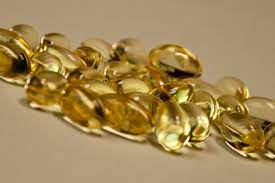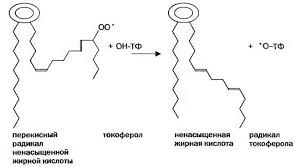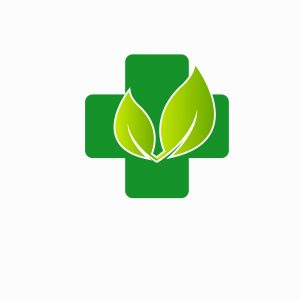Vitamin E and HGH
Video Link: https://vimeo.com/184148681
Video Download: Vitamin E The Controversial Vitamin
Video Stream: Vitamin E The Controversial Vitamin
Vitamin E: The Controversial Vitamin
There is no substitute for Human Growth Hormone (HGH) Replacement Therapy. The benefits that HGH can deliver are so potent and beneficial that it is often referred to as a miracle drug. It is, of course, not a miracle. Instead, our HGH treatment regimens are based on the science of hormone restoration and are carefully crafted by our experienced staff to produce results.
But we do not stop with HGH therapy.
To ensure your body can benefit from our treatments, we also include specific advice on nutrition, stress control, sleep, hydration, toxin removal, and supplements. Our supplement recommendations are based on the latest research, and Vitamin E is high on our list of recommendations.
Recognized as a necessary nutrient without which we cannot live, hailed as an aid to healing, and as a supreme antioxidant helpful in holding off the  effects of aging, Vitamin E is now recognized as a substance that we must be careful with. While it's good to ensure you're getting enough - preferably by eating a healthy diet - too much Vitamin E supplementation has been linked to an increase in oxidation damage and an acceleration of the signs of aging and other diseases. So it pays to know what you're doing when your diet is in question - your health, quality of life, and length of life are all at stake.
effects of aging, Vitamin E is now recognized as a substance that we must be careful with. While it's good to ensure you're getting enough - preferably by eating a healthy diet - too much Vitamin E supplementation has been linked to an increase in oxidation damage and an acceleration of the signs of aging and other diseases. So it pays to know what you're doing when your diet is in question - your health, quality of life, and length of life are all at stake.
Not long after Vitamin E was discovered in 1922, researchers determined that it had beneficial effects on premature infants who had failed to grow. They also found that a deficiency of Vitamin E in infants caused a specific type of anemia, which has now been eradicated.
One of the causes of our bodies' aging is oxidation, which causes cell damage. One of the significant causes of oxidation is "free radicals" and the cell-destroying chain reactions they cause. Vitamin E, in small quantities, is an excellent antioxidant. Getting enough of it has been shown to slow the oxidation and cell damage we perceive as aging. It's been called the body's primary defender against oxidation.
Vitamin E has also been shown to significantly retard LDL cholesterol oxidation and fight plaque formation in the arteries - one of the leading causes of cardiovascular disease. The New England Journal of Medicine published a study that found a significant lowering, up to 80 percent, of heart disease risk among those with sufficient Vitamin E intake.
It's also been found that getting enough of this nutrient in your diet can help prevent breast and prostate cancer and can even slow down cognitive decline as we age.
It's also essential to distinguish between the natural and synthetic forms of Vitamin E. There are eight varieties of Vitamin E on the market, but to tell whether your multivitamin or supplement is natural or synthetic, just look at the prefix. If it's "d—," then it's a natural compound—if it's "dl—," then it is synthetic. Some doctors say that the natural form is far more effective.
But taking Vitamin E supplements can be risky if you take them too much. Getting too much Vitamin E is called "hypervitaminosis E." It can lead to severe bleeding problems, as the nutrient can act as an anticoagulant in sufficient quantities—especially if combined with aspirin or other blood-thinning drugs.
Taking too much Vitamin E can also counteract the effects of Vitamin K (vital for artery and bone health, among other things), leading to a deficiency of that essential nutrient. Most authorities suggest that you ingest no more than 1,500 mg (or 1,000 IU) of Vitamin E per day to avoid these problems.
to a deficiency of that essential nutrient. Most authorities suggest that you ingest no more than 1,500 mg (or 1,000 IU) of Vitamin E per day to avoid these problems.
One study even found that even somewhat high doses of Vitamin E can lead to increased lung cancer risk: those who consumed 400 mg of Vitamin E daily had a 28% higher risk for the disease, and the increase was even more significant for those who smoked.
What about applying Vitamin E directly to scars or cuts? One study showed that the belief that the nutrient promotes healing is a myth: In 90 percent of cases, topical application of Vitamin E had no effect or made the scar worse, and 33 percent of those who did such developed contact dermatitis.
How can you balance getting the needed quantity of Vitamin E daily with the risks of getting too much? The best way is to get your supply of this nutrient from healthy foods instead of supplement pills. This is Nature's way, and it's also the way that lets your body do the balancing itself, which entails no risk: Our bodies have evolved to take in just the right amount of Vitamin E from the foods we eat, as opposed to a sudden surge from a caplet or pill.
Some foods rich in Vitamin E include leafy green vegetables, nuts, rice bran, barley, and palm oils. Organic, locally-grown produce is likely to have the best integrity of the nutrient and other nutrients that operate in synergy, making the total effect much more significant. Also, avoid processed junk foods at all costs: These not only contain questionable substances, but their empty calories crowd out good food from your diet - while causing unwanted weight gain and well-known (and some probably unknown) side effects, none of them good.
So, Vitamin E is an essential part of your diet. It has marvelous and beneficial effects. But take too much, and you can take some real risks. The small quantity of Vitamin E you get from a quality multivitamin and a healthy diet should be sufficient for most people. Add extra supplements only with careful planning and understanding of their effects.
 Remember, with Vitamin E—and every single thing you put into your body—you're in charge. Your present and future life are on the line, and it's a big responsibility. If you take the time and take charge of your nutrition, you'll be glad you did, and so will your loved ones!
Remember, with Vitamin E—and every single thing you put into your body—you're in charge. Your present and future life are on the line, and it's a big responsibility. If you take the time and take charge of your nutrition, you'll be glad you did, and so will your loved ones!
Contact us for a FREE, no-obligation discussion about the benefits of HGH restoration therapy.
REFERENCES
Institute of Medicine Food & Nutrition Board, (2000). Dietary Reference Intakes: Applications in Dietary Assessment. Washington, DC; National Academy Press. p. 289
American Journal of Respiratory and Critical Care Medicine, 1 March 2008; 177(5): 524-30
New England Journal of Medicine, "Vitamin E Consumption and the Risk of Coronary Heart Disease in Men," http://www.nejm.org/doi/full/10.1056/NEJM199305203282004 accessed April 20, 2014
WebMD, "Guide to Treating Acne Scars and Skin Damage," http://www.webmd.com/skin-problems-and-treatments/acne/acne-care-11/acne-scars , accessed April 19, 2014
Mercola.com, "Vitamin E Linked to Lung Cancer," http://articles.mercola.com/sites/articles/archive/2008/04/10/vitamin-e-linked-to-lung-cancer.aspx , accessed April 19, 2014
- Vitamin B2 Riboflavin Benefits And Side Effects [Last Updated On: February 18th, 2025] [Originally Added On: January 11th, 2021]
- Understanding Vitamin B2: Riboflavin [Last Updated On: February 19th, 2025] [Originally Added On: February 12th, 2025]
- Introduction to the Importance of Vitamin E and HGH [Last Updated On: February 16th, 2025] [Originally Added On: February 16th, 2025]
Word Count: 1106







